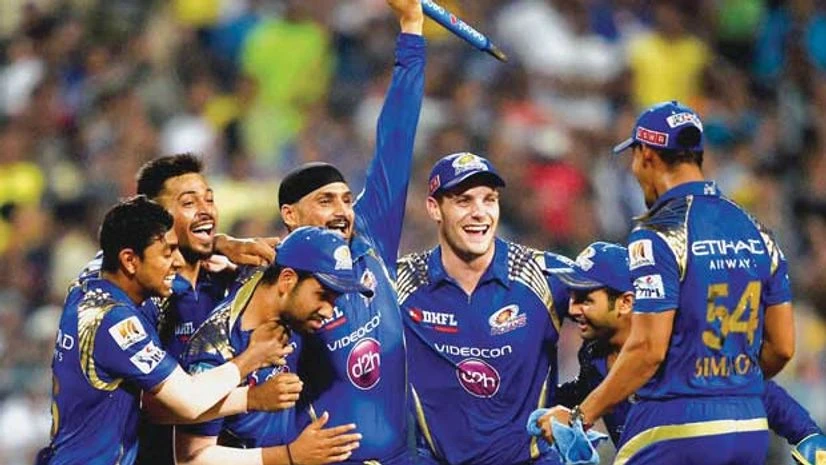Glamour and profits seldom go together. The former requires pushing new boundaries while the latter entail living within your means. It's not surprising, then, that owning a piece of the country's most glamorous sporting event, Indian Premier League (IPL), has gone hand-in-hand with financial troubles in the core business for many team owners.
It must, however, be noted that while many of these business groups face financial, legal or other problems, their troubles aren't necessarily due to their owning an IPL team.
Read more from our special coverage on "IPL"
While the financial troubles of UB Group's Vijay Mallya is well-documented, other original team-owners such as India Cements and GMR Infrastructure ran into rough weather since they acquired the franchises for the sporting event. Even Reliance Industries, which owns Mumbai Indians, hasn't done too well since it bought the team.
India Cements has gone from being among the country's top five cement makers to being the industry's biggest laggard. Its stock price and market value are now less than what they were in late 2007 when the company acquired the Chennai IPL franchise. At its current stock price, India Cements' market value is a quarter of its regional rival Ramco Cements (formerly Madras Cements). This is largely due to its poor financial performance and below-par growth in the past eight years.
India Cements' return on net worth (RoNW) declined from an industry-leading 45 per cent in 2006-07 to almost zero in the last financial year. The decline cannot be blamed entirely on external business environment as its next-door neighbour Ramco Cements reported an RoNW of 9.5 per cent in the last financial year.
Mukesh Ambani-owned Reliance Industries hasn't set the Street on fire either since it acquired the IPL franchise for Mumbai in 2008. The company has been a laggard on the bourses, underperforming the benchmark BSE Sensex and Nifty 50 index during the period. Eight years ago, Reliance Industries was India's most valuable company; now, it is ranked second.
The reasons are not hard to fathom. Its returns ratios have been declining steadily in the past few years as profitability failed to catch up with its growing investments in various new ventures. The company reported an RoNW of 10.1 per cent in FY15, down from 21 per cent in FY07, on the eve of acquiring the Mumbai Indians IPL team.
Infrastructure developer and IPL Delhi team owner GMR Infra, too, is not in a great financial shape. The company's stock price is down nearly 80 per cent from the highs of 2008 and the firm is now struggling with high debt and financial losses due to a combination of poor operational efficiencies and mounting interest burden. It reported a loss of Rs 2,591 crore in FY15, compared to net profits of Rs 171 crore in FY07 before IPL's first team auction.
Of course, there is not a direct link to corporate financial performance and owning an IPL team. "Poor financial performance and ownership of IPL teams could just be a coincidence as the financial outlays on buying and running a team was a fraction of most groups' total capex," says Arvind Singhal, chairman of Technopak Advisors.
He, however, concedes that for most companies, owning a cricket team was an expensive ego trip that failed to live up to the initial hype. "Most firms treated IPL as a vehicle for brand-building though an expensive one," adds Singhal.
For small businesses such as Deccan Chronicle Holdings, the IPL team ownership involved substantial financial investment and time compared to their core businesses and could be a factor for its financial troubles. Due to mounting losses and high debt, Deccan Chronicle was forced to sell its team in 2012 to Kalanithi Maran-controlled Sun TV Network.
For Sun TV, team ownership hasn't done much to improve its fortunes. Its stock price has languished in the past four years, despite a bull run on the Dalal Street and the group has faced a barrage of controversy and regulatory challenges during this period.
IPL has proved costly for the Sahara group, too, which owned the Pune franchise and was dissolved after three seasons over financial differences with the Board of Control for Cricket in India. The team owner and promoter Subrata Roy is now in the Supreme Court's custody for nearly two years now over allegations of financial irregularity.

)
